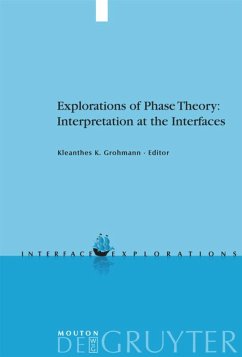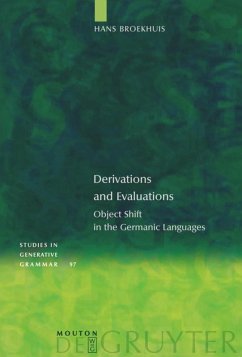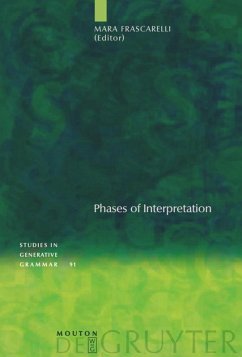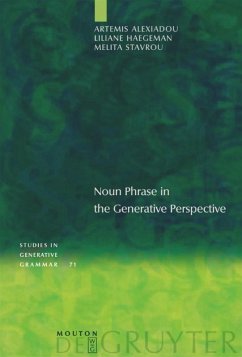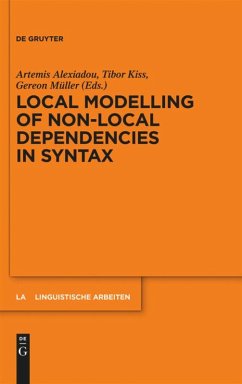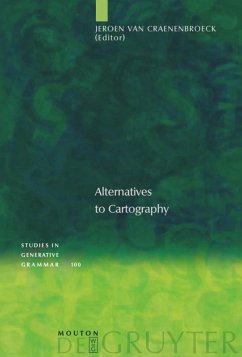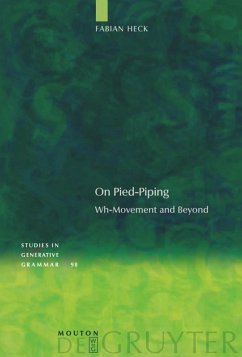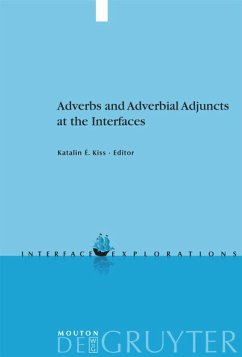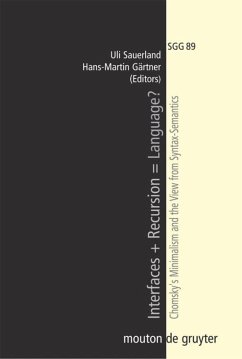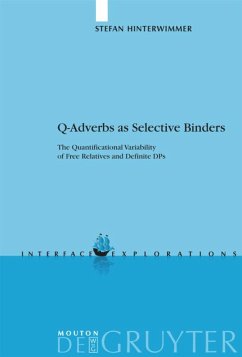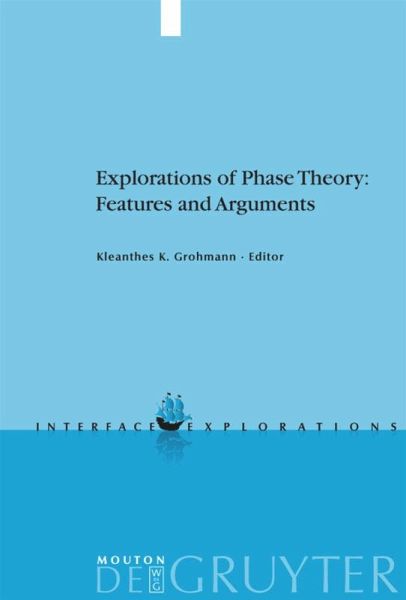
Explorations of Phase Theory: Features and Arguments
Versandkostenfrei!
Versandfertig in 6-10 Tagen
131,99 €
inkl. MwSt.

PAYBACK Punkte
66 °P sammeln!
Phase Theory is the latest model of modern syntactic theorizing in the generative tradition, the larger research enterprise known as the 'Minimalist Program.' This volume collects current research of scholars who investigate the role of formal features in the grammar, address licensing of grammatical properties in the theoretical model, and critically inspect particular aspects of the expression of arguments within Phase Theory. The chapters provide a wealth of empirical data from typologically different languages and novel syntactic analyses drawing from all aspects of the grammar (syntax, semantics, morphology, and phonology).
This is the first volume dedicated to the study of formal features and the expression of arguments within Phase Theory, the latest model of syntactic theorizing within the Minimalist Program. The collection addresses the nature of formal features and their role in the syntactic computation as well as checking mechanisms and configurations. It also investigates theoretical issues underlying the nature of syntactic arguments and their licensing (argument structure at large) and specific grammatical operations involving arguments (abstract and morphological case, empty elements, passivization, negation, and aspect).
The chapters presented in this volume provide case studies from several, typologically unrelated languages. Apart from novel analyses of new as well as well-known facts, the contributions also provide interesting aspects of and challenges for Phase Theory in general, by critically exploring a number of theoretical extensions, proposing new syntactic mechanisms, and sharpening our tools for linguistic analysis.
The chapters presented in this volume provide case studies from several, typologically unrelated languages. Apart from novel analyses of new as well as well-known facts, the contributions also provide interesting aspects of and challenges for Phase Theory in general, by critically exploring a number of theoretical extensions, proposing new syntactic mechanisms, and sharpening our tools for linguistic analysis.




